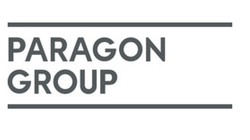Co-working trend is changing the office-space landscape in South Africa
| Co-working trend is changing the office-space landscape in South Africa_....doc | 40 KB | Download | |
| Discovery Place encourages interaction and collaboration among employees..jpg | 859.35 KB | Download | |
| Sasol Place is an example of workplace design responding to the impact of technology..jpg | 1.23 MB | Download | |
| Discovery Place is an example of workplace design incorporating a social context. | 942.96 KB | Download |
Paragon Interface, an interior architecture company that has designed some of the largest and most iconic corporate headquarters of recent times in South Africa, including the new Discovery head office and Sasol Place, both in Sandton, is seeing a growing move towards adopting this international trend locally.
“What the co-working trend implies for large corporates, in particular, is that, instead of maintaining and staffing a fully-fledged office building, they can now simply ramp up or down as new projects roll in or existing ones are completed. The key driver here is to cut real-estate costs, especially given the constrained global economic outlook and increasingly tight margins,” D’Adorante comments.
The major benefit of this trend for employees is that it supports what is termed ‘agile’ working, which is the logical next step of the open-plan office revolution. While traditional open-plan offices still tied workers to individual desks, and offered little in the way of shared services or collaborative working, ‘agile’ workspaces allow employees to work where and how they want to, with the full support and functionality required to do so.
There has been a key realisation that office-space design has to incorporate a social context, with the explosion of technology in recent years enabling this cultural shift. Employees, especially the younger generations, do not particularly enjoy being confined to a single desk set-up in a multi-partitioned open-plan environment.
Savvy corporates, on the other hand, are understanding that not only is this bad for productivity and creativity, but that this is also a prime area where they can be more efficient with their real-estate commitments, while driving staff engagement and wellbeing – resulting in measurable gains.
Therefore, agile workplaces represent the next stage of the open-plan revolution. What is needed is more collaboration and interaction among co-workers, which has resulted in concepts such as ‘hot desking’, which means that individual employees no longer have desks assigned to them personally, but simply utilise the office space as, and when, they require it.
As for the future evolution of the co-working trend, it could very well result in a paradigm shift in how major corporates are structured. Economies around the world are in constant flux, which means business is contracting and expanding all the time, while overheads tend to remain fixed. Suddenly there is a realisation that this no longer has to be the case, and that business has other options in how they utilise a traditional workspace.
However, there are a few key interior architecture principles that underpin effective co-working space design, D’Adorante points out Here it is important to design collaborative spaces that stimulate creativity and enable social interactions. But at the same time there is a very real need for private meeting spaces and quiet focus zones to balance all the activity.
“Our design approach at Paragon Interface emphasises teamwork and collaboration over hierarchy and insular work practices. Key factors here are flexibility, so as to maximise space usage, and identify potential growth areas in the building; efficiency, which means creating multiple-use spaces; adaptability, so as to respond to changing requirements and technologies; and sustainability, which relates to ‘green’ and healthy work environments that support the wellbeing of all staff,” D’Adorante concludes.
Ends
Connect with Paragon on Social Media to receive the company’s latest news
Facebook: https://www.facebook.com/ParagonGroupZA
Pinterest: https://za.pinterest.com/ParagonGroupZA
LinkedIn: http://bit.ly/ParagonGroupLinkedIn
Instagram: paragongroupza
Notes to the Editor
To download hi-res images for this release, please visit http://media.ngage.co.za and click the Paragon Group link to view the company’s press office.
About the Paragon Group
Paragon, established in October 1997, is an internationally-active African design business, based in Johannesburg. It delivers commercial architecture, masterplanning, interior design, and space planning to visionary clients in all property sectors.
We are committed to Africa, and believe in the future of its cities. Our roots are here. We have much to offer. We are able and agile, and actively participate in the continent’s urban and human development. Paragon is flexible and diverse in its approach to design. Each project is unique and not driven by style, but by lifestyle and a response to user needs. Elegant and efficient planning form the core of our designs. We understand the needs of our clients, and know how to generate ever new architectural forms in a competitive property market.
We are known for hands-on engagement with all opportunities present in the modern global building industry. The true measure of our skill is our ability to engage at all levels and with all players that make up the colourful world of construction and property development. Our buildings look forward. We embrace the future, because we will be a part of it – part of its problems and responsibilities, and part of its great freedoms and achievements.
Media Contact
Renay Tandy
NGAGE Public Relations
Phone: (011) 867 7763
Fax: 086 512 3352
Cell: 082 562 5088
Email: renay [at] ngage [dot] co [dot] za
Web: www.ngage.co.za
Browse the NGAGE Media Zone for more client press releases and photographs at http://media.ngage.co.za

